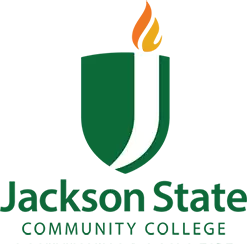Contact Information
Dr. Wesley O. Smith
(731) 424-3520 ext. 50525
wsmith16@jscc.edu
Program and Career Description
The Electrical Engineering transfer pathway is designed to provide students with an exceptional depth of background knowledge in mathematics and science allowing them to pursue further education and a career as an electrical engineer. Students complete courses in other needed areas as well, such as communications and computer science. Additional elective courses are also available. Emphasis is placed on application of knowledge and problem solving in practical situations. The Associate of Science degree in Electrical Engineering allows students to complete the first two years of study with the advantages inherent in a community college while preparing to transfer into a four year engineering program. Students work closely with science and math faculty with access to science labs and computer facilities. Completion of the Associate Degree supplies the student with strong academic skills and an understanding of science, mathematics, and fundamental engineering principles appropriate to pursue a bachelor’s degree.
Program Requirements
(Students may require additional Learning Support courses.)
Communication Requirement (All required)
ENGL 1010 English Composition I
ENGL 1020 English Composition II
COMM 2025 Fundamentals of Communication
Choose THREE Humanities Courses (One must be a literature Course)
ARTH 2010 Survey of Art History I
ART 2020 Art History Survey II
ART 1035 Intro to Art
COMM 1851 Intro to Film
ENGL 2110 Early American Literature
ENGL 2121 American Lit: 1865 - Present
ENGL 2210 British Lit: Beginnings - 1785
ENGL 2220 Modern British Literature
ENGL 2310 Early World Literature
ENGL 2320 Modern World Literature
HUM 1010 Introduction to the Humanities I
HUM 1020 Introduction to the Humanities II
MUS 1030 Introduction to Music
PHIL 1030 Introduction to Philosophy
PHIL 1040 Introduction to Ethics
THEA 1030 Introduction to Theatre
Choose TWO Social and Behavioral Science Courses
ECON 2100 Principles of Macroeconomics
ECON 2200 Principles of Microeconomics
GEOG 2010 World Regional Geography
PHED 2050 Health and Wellness
POLS 1030 American Government
POLS 2025 State and Local Government
PSYC 1030 General Psychology
SOCI 1010 Introduction to Sociology
SOCI 1020 Social Problems
Choose TWO History Courses
HIST 1110 Survey of World Civilizations I
HIST 2320 Modern World History
HIST 2010 Survey of American History I
HIST 2020 Modern United States History
Natural Science Requirement
PHYS 2110 Calculus-Based Physics I
PHYS 2120 Calculus-Based Physics II
Mathematics Requirement
MATH 1910 Calculus I
Area of Emphasis Requirements
MATH 1920 Calculus II
MATH 2110 Calculus III
MATH 2010 Intro to Linear Algebra
MATH 2120 Differential Equations
CHEM 1110 General Chemistry I
CISP 1010 Computer Science I*
ENGR 2130 Circuits I
COL 1030 College to Career Navigation
*A three credit hour Programming (C++) course is acceptable to meet this requirement
Students are strongly encouraged to take two courses in Circuits II and Digital Design before transferring to a university. Courses in engineering technology do not fulfill any of the requirements for the Area of Emphasis in Electrical Engineering. Although it is possible to complete the B.S. Degree in Electrical Engineering in four semesters after earning the associate’s degree, students typically need five or six semesters to complete requirements.
The Associate of Science: Electrical Engineering requires 67 college level credits. Some courses have prerequisites and co-requisites.

